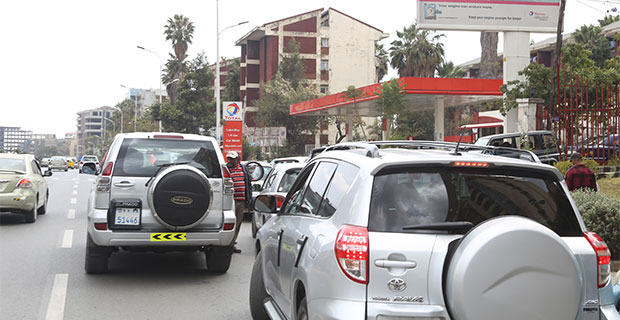
The Ethiopian Statistics Service (ESS) plans to launch a price index survey focusing on construction materials and inputs.
The index is anticipated to serve as a crucial marker in a government-mandated price escalation adjustment for projects commissioned by public offices and universities. Over 800 ongoing projects worth nearly 100 billion Br are publically financed, with almost 90pc run by 41 federal universities.
Officials of the Service, formerly the Central Statistics Agency, have been working on the project since last month, with the plan to use a probability sampling method among others to determine the average prices of up to 30,000 materials used for construction. Over 100 data collectors will be deployed next month to compile prices in a pilot project. They expect the process to take no longer than one month.
The Service plans to compile indices quarterly and use the first survey as a benchmark for future reference, says Zelalem Hailegiorgis, head of the business statistics directorate at the ESS.
The construction industry grew at an annual rate of 11pc for over a decade before taking a series of hits in the past couple of years. The tumble began with the doubling of cement prices to 500 Br a quintal in 2019. Similar increases in the prices of other inputs, such as reinforcement bars (rebar) and aluminium, followed. Finishing materials have also seen prices skyrocket.
Health protocols in response to the COVID-19 pandemic forced some contractors to suspend or even terminate projects, and the construction industry has been struggling to recover ever since.
Outcries from contractors led the Ministry of Finance to issue a circular in March this year, directing federal government offices and public universities to adjust the contractual value of projects based on the changes in the price of construction inputs. In August, following another circular from the Ministry directing that finishing materials should be included in the escalation list, a committee was formed to conduct a market study. It comprises members from the Urban Development and Finance ministries, the Public Procurement & Property Administration Agency, and the Ethiopian Contractors Association.
However, there has been little progress to speak of.
The Contractors Association, representing around 2,500 construction firms, has been collecting receipts and data from 2017 onward to determine trends and the current market prices of inputs such as cement, steel, rebar and finishing materials. The President of the Association, Girma Habtemariam, believes the survey will be of great help in reaching a fair arrangement.
"A separate index for the construction industry will make the price escalation adjustment workable," said Girma.
It is a sentiment shared by Addis Midiksa, a founder and general manager of AK Construction, a grade-four contractor that has been in the industry for almost a decade. According to Addis, it will be instrumental in ensuring transparency and raising the credibility of contractors who will use the index whenever making requests.
Abebe Demisew, head of the Construction Technology & Management Academic Programme at Debre Markos Institute of Technology, urges the surveyors to analyse price patterns across the supply chain.
"There is a tendency to focus on retail price," Abebe told Fortune. "As much attention should be given to factory and wholesale prices."
PUBLISHED ON
Oct 16,2021 [ VOL
22 , NO
1120]

Agenda | Mar 06,2021

Editorial | May 21,2022

Fortune News | Apr 16,2022

Fortune News | Dec 25,2021

Fortune News | May 21,2022

Films Review | Nov 17,2018

Radar | Jul 11,2021

Radar |

Fortune News | Dec 02,2023

Commentaries | Dec 04,2021

Dec 22 , 2024 . By TIZITA SHEWAFERAW
Charged with transforming colossal state-owned enterprises into modern and competitiv...

Aug 18 , 2024 . By AKSAH ITALO
Although predictable Yonas Zerihun's job in the ride-hailing service is not immune to...

Jul 28 , 2024 . By TIZITA SHEWAFERAW
Unhabitual, perhaps too many, Samuel Gebreyohannes, 38, used to occasionally enjoy a couple of beers at breakfast. However, he recently swit...

Jul 13 , 2024 . By AKSAH ITALO
Investors who rely on tractors, trucks, and field vehicles for commuting, transporting commodities, and f...

Jul 12 , 2025
Political leaders and their policy advisors often promise great leaps forward, yet th...

Jul 5 , 2025
Six years ago, Ethiopia was the darling of international liberal commentators. A year...

Jun 28 , 2025
Meseret Damtie, the assertive auditor general, has never been shy about naming names...

Jun 21 , 2025
A well-worn adage says, “Budget is not destiny, but it is direction.” Examining t...